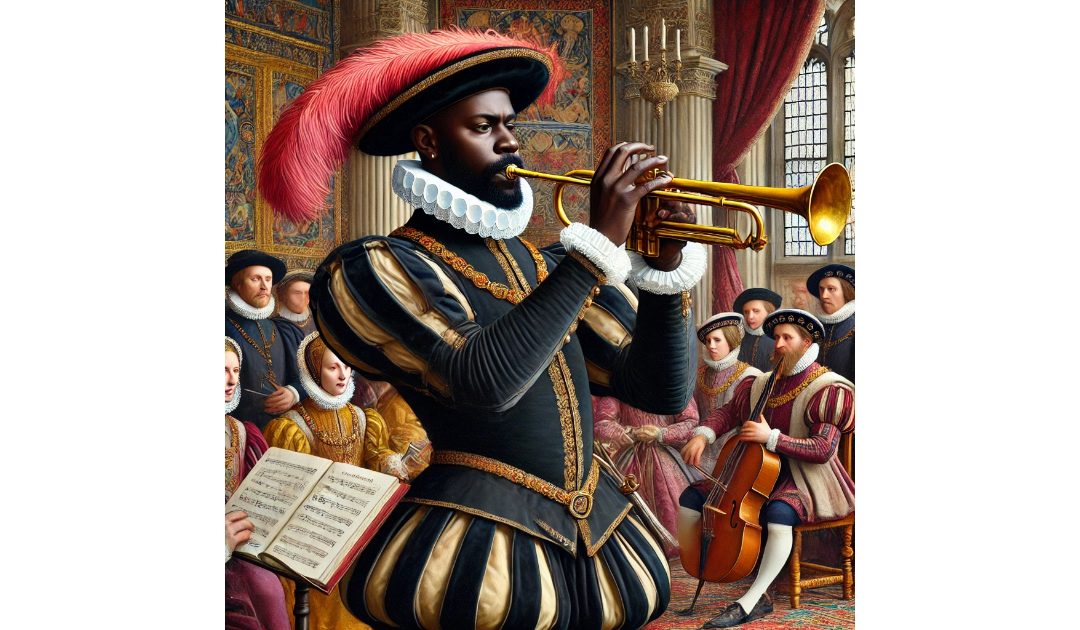I have posted about Renaissance musicians previously. The On This Day website tells me that on the seventh of November 1507 John Blanke is first mentioned in a written record when he petitioned Henry VII for a pay increase, citing his commitment and expertise. He was granted a raise from eight to sixteen pence per day, a testament to his value in the royal court. John Blanke holds a unique place in British history as one of the earliest recorded Black individuals in Tudor England, recognised primarily for his role as a musician in the court of King Henry VII and later Henry VIII. His story, though pieced together from fragments of historical records, offers a rare glimpse into the multicultural fabric of Renaissance England, challenging conventional views of its homogeneity and illuminating the presence and contributions of people of African descent.
His distinctive presence as a Black musician is visually recorded in the Westminster Tournament Roll, a 60-foot-long illustrated manuscript commissioned by Henry VIII to celebrate the birth of his son. In this iconic depiction, Blanke is shown performing in the ceremonial procession, wearing a turban or hat, distinguishing him from his fellow musicians and underscoring his unique status at court.
As a musician, Blanke held an esteemed position, as trumpeters played an essential role in Tudor society. Trumpeters were highly regarded for their ability to add grandeur to court events, and their fanfares marked significant moments such as royal entries, tournaments, and other ceremonial occasions. Historical records suggest that Blanke was not only well-regarded but also well-compensated for his services. In 1507,
Blanke’s presence and recognition challenge misconceptions about race and class in Tudor England. While little is known about his background or life beyond the court, his career suggests a degree of social mobility and acceptance that is often overlooked in narratives about early modern Europe. The fact that he was able to petition the king and negotiate his wages indicates a certain level of respect and autonomy afforded to him as a court musician.
John Blanke’s legacy resonates today as historians and cultural scholars seek to broaden the scope of British history to include the diverse experiences and contributions of figures like him. His life is a reminder of the longstanding connections between Africa and Europe and an inspiration for recognising the multicultural influences that have shaped British heritage from the Renaissance to the present day. I apologise for the AI image. Valved trumpets weren’t invented until 1818.

